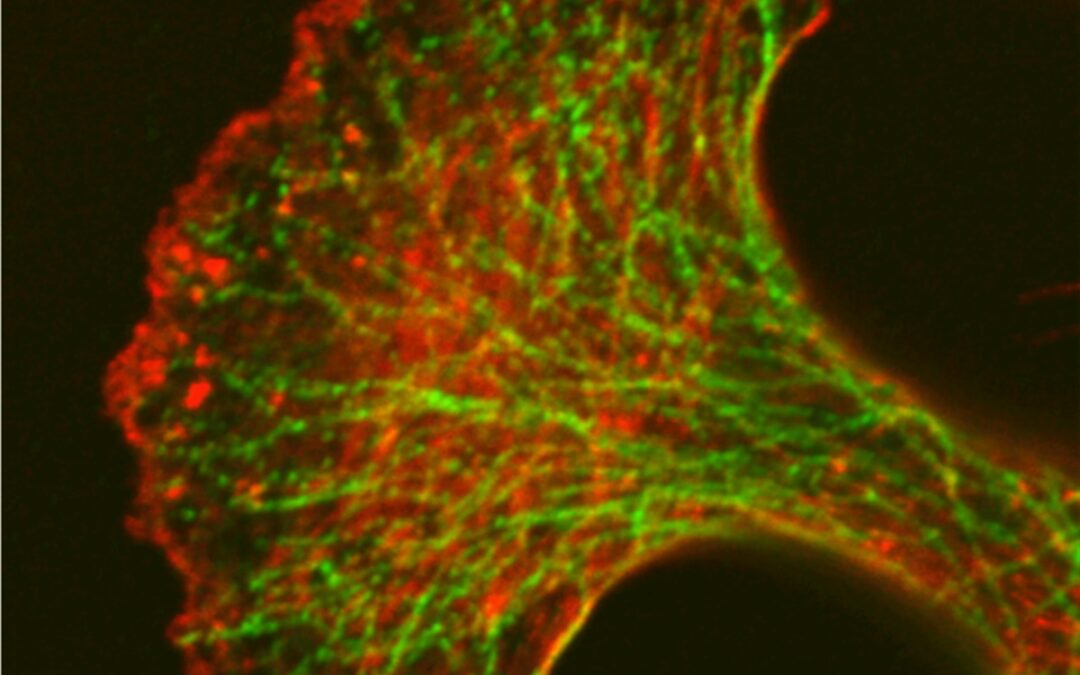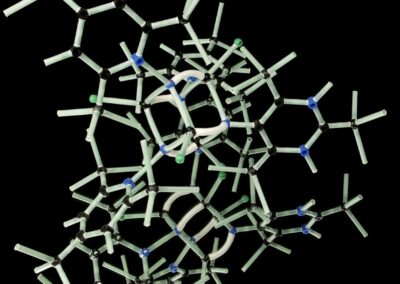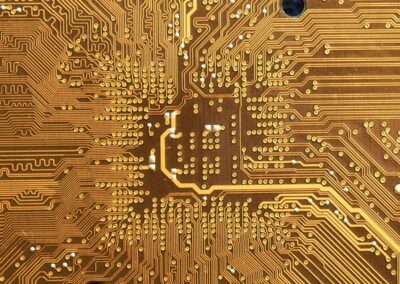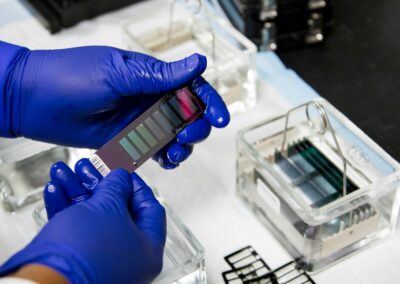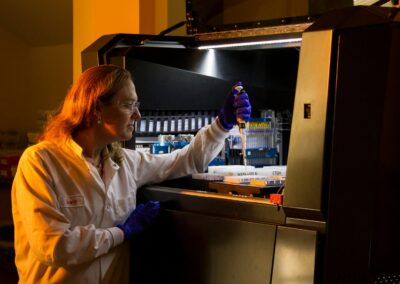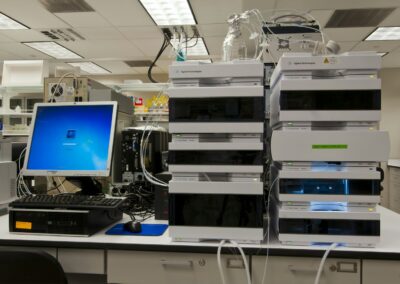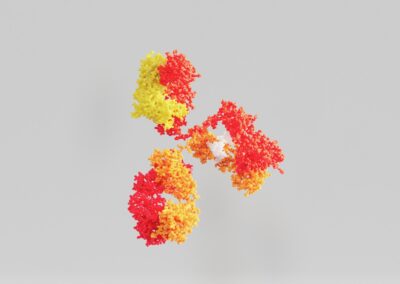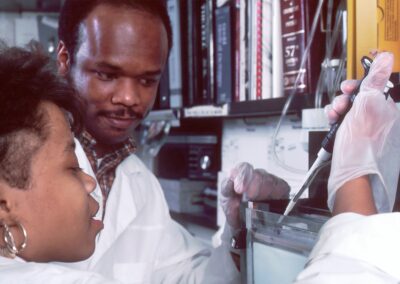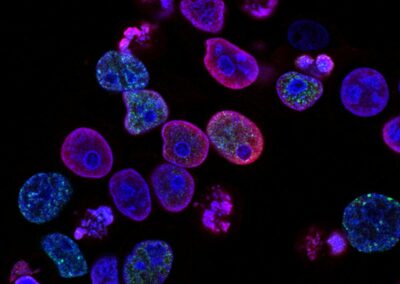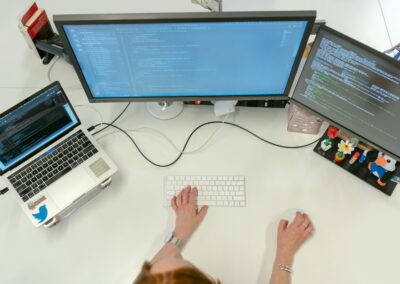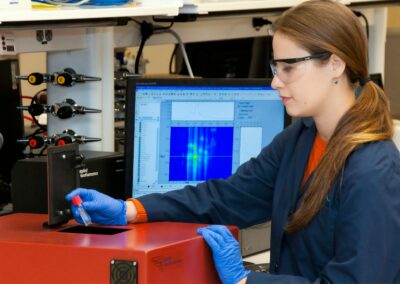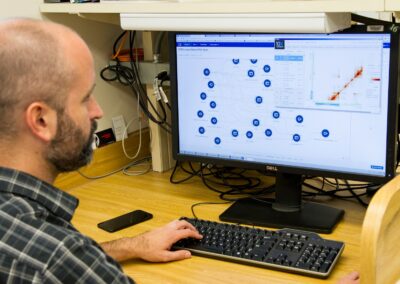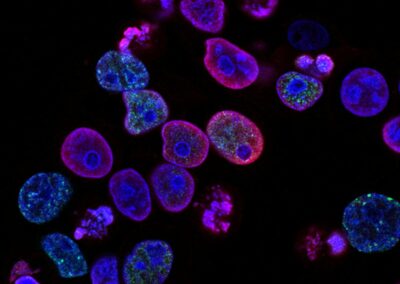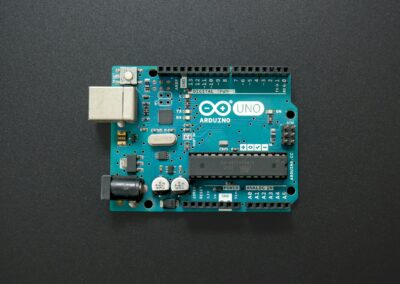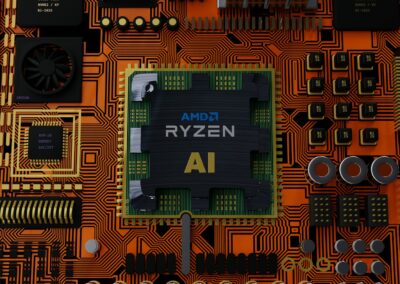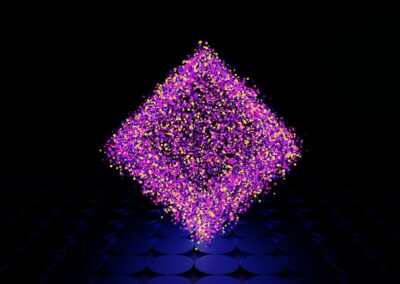The Transformative Potential of DNA Computing in Various Sectors
Revolutionizing Healthcare and Biotechnology
DNA computing holds immense potential to revolutionize the healthcare and biotechnology sectors. Unlike traditional computing, which relies on silicon-based processors, DNA computing uses biological molecules to perform complex calculations. This innovation can significantly enhance the precision and efficiency of medical diagnostics, personalized medicine, and genetic research. For instance, DNA-based algorithms can analyze vast amounts of genetic data to identify disease markers, leading to earlier and more accurate diagnoses.
In Saudi Arabia and the UAE, where healthcare innovation is a priority, integrating DNA computing into medical research and practice can lead to groundbreaking advancements. Hospitals in Riyadh and Dubai can leverage DNA computing to develop personalized treatment plans based on an individual’s genetic profile, improving patient outcomes and reducing healthcare costs. Additionally, DNA computing can accelerate the development of new drugs and therapies by simulating biochemical reactions at a molecular level, thus speeding up the research and development process.
Furthermore, DNA computing can enhance the field of synthetic biology, enabling the design and creation of new biological systems and organisms. This can lead to the development of bioengineered solutions for environmental challenges, such as bioremediation and sustainable agriculture. By embracing DNA computing, Saudi Arabia and the UAE can position themselves as leaders in biotechnology, driving economic growth and technological innovation.
Enhancing Data Storage and Cryptography
The future applications of DNA computing extend to data storage and cryptography, where it can provide unprecedented security and efficiency. DNA molecules can store vast amounts of information in an extremely compact form, offering a solution to the growing demand for data storage. One gram of DNA can theoretically hold up to 215 petabytes (215 million gigabytes) of data, making it a viable option for archiving large datasets.
In the realm of cryptography, DNA computing offers a novel approach to secure data transmission and storage. DNA-based cryptographic systems can leverage the complexity of biological molecules to create highly secure encryption algorithms. These systems are inherently resistant to brute-force attacks due to the vast combinatorial possibilities of DNA sequences. In regions like Saudi Arabia and the UAE, where cybersecurity is paramount, adopting DNA-based cryptography can enhance the protection of sensitive information and critical infrastructure.
Businesses in Riyadh and Dubai can benefit from DNA-based data storage solutions by reducing the physical space and energy required for traditional data centers. This can lead to significant cost savings and improved sustainability. Additionally, the integration of DNA computing with blockchain technology can enhance the security and transparency of digital transactions, fostering trust and confidence among stakeholders.
Accelerating Artificial Intelligence and Machine Learning
DNA computing has the potential to revolutionize artificial intelligence (AI) and machine learning by providing faster and more efficient data processing capabilities. The parallel nature of DNA computing allows for the simultaneous execution of multiple computations, significantly speeding up complex algorithms and data analysis tasks. This can lead to more advanced AI systems capable of learning and adapting in real-time.
In Saudi Arabia and the UAE, where AI is a key focus of technological development, integrating DNA computing can accelerate the advancement of intelligent systems. For example, AI-powered DNA computing can enhance predictive analytics, enabling businesses to make data-driven decisions with greater accuracy and speed. This can improve operational efficiency, optimize supply chains, and enhance customer experiences across various industries.
Moreover, DNA computing can facilitate the development of generative AI, which involves creating new content, designs, and solutions based on existing data. This can drive innovation in sectors such as entertainment, fashion, and manufacturing, where creativity and customization are critical. By leveraging the capabilities of DNA computing, Saudi Arabia and the UAE can position themselves at the forefront of AI research and application, attracting global talent and investment.
Strategic Implications for Business and Technology in the Middle East
Driving Innovation and Economic Growth
The adoption of DNA computing can drive significant innovation and economic growth in Saudi Arabia and the UAE. These nations have made substantial investments in advanced technologies and are committed to fostering environments conducive to innovation. By embracing DNA computing, they can enhance their technological capabilities and create new opportunities for business and economic development.
In Riyadh, initiatives such as the National Transformation Program and Vision 2030 highlight the country’s commitment to technological advancement and economic diversification. DNA computing aligns perfectly with these goals, offering a pathway to developing new industries and creating high-tech jobs. By integrating DNA computing into their technological ecosystems, Riyadh can attract global talent and investment, solidifying its position as a hub of innovation.
Similarly, Dubai’s futuristic vision and ambitious projects make it an ideal candidate for the adoption of DNA computing. The Dubai Future Foundation and other forward-thinking organizations are already exploring the potential of DNA computing and other advanced technologies. By leveraging the unique capabilities of DNA computing, Dubai can enhance its smart city initiatives and drive economic growth, positioning itself as a global leader in technological innovation.
Leadership and Management in the Age of DNA Computing
Effective leadership and management are essential in navigating the complexities of adopting DNA computing. Leaders in Saudi Arabia and the UAE must be equipped with the knowledge and expertise to guide their organizations through this technological transformation. This involves fostering a culture of innovation and continuous learning, ensuring that teams are prepared to tackle the challenges and opportunities presented by DNA computing.
Strategic planning is a critical component of leadership in this context. Leaders must develop comprehensive strategies that outline the steps necessary to implement DNA computing, including investments in research and development, collaborations with academic and industry partners, and the establishment of robust infrastructure. By setting clear goals and milestones, leaders can effectively manage the transition to DNA computing and ensure that their organizations remain at the forefront of technological innovation.
Effective communication and collaboration are also crucial. Leaders must articulate the potential benefits and challenges of DNA computing to their teams, stakeholders, and customers. By fostering a collaborative environment, they can ensure that all members of the organization are aligned with the strategic vision and working towards common goals. This holistic approach to leadership and management will be instrumental in driving the successful adoption of DNA computing and achieving long-term business success.
Integrating DNA Computing with Emerging Technologies
The intersection of DNA computing with other emerging technologies, such as artificial intelligence, blockchain, and the Metaverse, presents exciting possibilities for technological advancement and business innovation. These technologies, when combined, can create powerful synergies that drive unprecedented levels of efficiency, security, and functionality. For businesses in Saudi Arabia and the UAE, this convergence offers a unique opportunity to stay ahead of the curve and maintain a competitive edge in the global market.
AI can significantly enhance the capabilities of DNA computing by providing advanced algorithms and machine learning techniques to optimize computational processes. This integration can lead to more intelligent and adaptive systems, capable of handling complex tasks with greater precision and speed. For example, AI-powered DNA computing can be used in predictive analytics, enabling businesses to make data-driven decisions and anticipate market trends more accurately.
Blockchain technology, known for its robust security features, can complement DNA computing by providing secure and transparent frameworks for data transactions. This combination can be particularly beneficial in sectors such as finance and healthcare, where data integrity and security are paramount. By leveraging blockchain-enabled DNA computing, businesses can ensure the reliability and confidentiality of their data, fostering trust and confidence among stakeholders.
The Metaverse, a virtual universe that combines augmented reality (AR), virtual reality (VR), and the internet, offers new opportunities for immersive experiences and digital interactions. By incorporating DNA computing, the Metaverse can achieve greater computational power and efficiency, enhancing the realism and interactivity of virtual environments. This can drive innovation in various sectors, including entertainment, education, and retail, providing businesses with new ways to engage with customers and create value.
Conclusion
In conclusion, the future applications of DNA computing hold immense potential to revolutionize computing and information technology. For businesses in Saudi Arabia and the UAE, embracing this advanced technology can drive economic growth, enhance operational efficiencies, and foster a culture of innovation. By integrating DNA computing with other emerging technologies such as artificial intelligence, blockchain, and the Metaverse, these nations can position themselves as global leaders in technological advancement and business success. The journey towards this future requires strategic investments, effective leadership, and a commitment to continuous learning and adaptation, ensuring that the full potential of DNA computing is realized.
#FutureApplications #DNAComputing #Innovation #SaudiArabia #UAE #ArtificialIntelligence #Blockchain #Metaverse #GenerativeAI #Riyadh #Dubai #BusinessSuccess #LeadershipSkills #ProjectManagement

